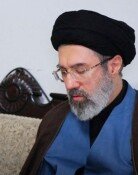[Editorial] Google University
[Editorial] Google University
Posted January. 17, 2008 07:22,
The Dong-A Ilbo shares its book recommendations with readers each day under the title 30 Books to Recommend to the New President. One such book is Sparks of Genius by Robert and Michele Root-Bernstein.
Park Maeng-ho, president of Minumsa Publishing who recommended the book, said, We are living in an era where a nations wealth depends on creativity. I recommend this book to the new president with my earnest exhortation that the next administration shows a new vision to bring about a profound change in our thoughts. Dong-A appreciates his invaluable comments that remind us of what we desperately need most.
Accelerating specialization trends has resulted in fragmented knowledge, according to the authors. People are deluged with a flood of information, but few know their origin, meaning or how to use it. In other words, despite the increase in the quantity of knowledge, comprehension and creativity levels have decreased. The ceaseless flood of knowledge fails because people dont use their own brains enough. The principal culprit of this phenomenon is the Internet.
University of Brighton media studies professor Tara Brabazon said Google has become an indispensable research tool for colleges. She said online resources make it too easy for students to grab a couple of quick facts about a topic and regurgitate them for their assignments. Brabazon also pointed to Wikipedia, saying these online resources result in creating an age of banality and mediocrity by proving consented information with no room for discussion. Many will feel a sting of conscience when hearing her comments. Professors complain nothing can prevent students from committing Internet plagiarism.
There is hardly a match for Google in speed and accuracy of providing information. Every day, 65 million users search for 250 million bits of information in 35 languages. Google and Wikipedia have undoubtedly contributed to expanding knowledge and narrowing information disparity. Nevertheless, the data they provide is uniform and fragmented. The 21st century will be shaped by a few creative figures. The students of Google University who have the same kind of knowledge cannot usher in a new era.
Editorial writer Jeong Seong-hee, shchung@donga.com







